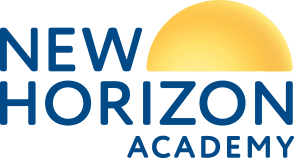Newborn Hearing Screening

Communication and language start to develop at birth. A child with hearing loss may have difficulty with communication and language development without early help. If a baby has hearing loss, it is usually not noticeable to parents or care providers because some babies with hearing loss may startle to loud sounds and even appear to listen.
When should a baby’s hearing be screened?
Screening should be done as soon as possible and is best completed before a baby is 1 month old. It is typically offered to parents at the hospital after giving birth.
How will a baby’s hearing be screened?
Unlike hearing tests for older children and adults, newborn hearing screening does not require a baby to raise their hand in response to test sounds. Rather, newborn hearing screening measures a baby’s internal response to test sounds.
Newborn hearing screening is performed while the baby is calm. The two methods currently in use for newborn hearing screening are Otoacoustic Emissions (OAE) and Automated Auditory Brainstem Response (AABR). Both are acceptable for screening babies. With OAEs, a soft rubber tip placed in each ear delivers soft tones and measures an echo that occurs when the ear is functioning normally. With AABRs, earphones deliver the test sounds. Sensors placed on the baby’s head and neck measure the baby’s internal response to those sounds. For both OAEs and AABRs, a computer measures whether the result is a PASS or an ALERT: REFER (FURTHER TESTING NEEDED).
What do the results mean?
If a baby receives a PASS result, the screening indicates that the baby’s hearing is normal at that time. Because hearing loss can occur at any time during a person’s life, concerns for hearing loss or missed speech milestones should be brought to a healthcare provider’s attention.
Communication and Language Milestones
If a baby receives an ALERT: REFER (FURTHER TESTING NEEDED) result, the screening indicates that the child did not pass the hearing screening and further testing is needed to make sure the baby is hearing all the sounds important for speech and language development. The baby’s health care provider will help the parents arrange an appointment for follow-up as soon as possible.
What is the Early Hearing Detection and Intervention Program?
The Early Hearing Detection and Intervention (EHDI) Program assists in identifying newborns and infants who have or are at risk of having hearing loss, and guides families to appropriate intervention services.
The goals of the EHDI program are for all babies to have:
- Hearing screened by 1 month of age
- Diagnostic evaluation by 3 months of age
- Early intervention services by 6 months of age
Identifying babies with hearing loss early and offering education, family support and intervention can make a big difference.
This article was adapted from the Minnesota Department of Health Newborn Hearing Screening Program.


